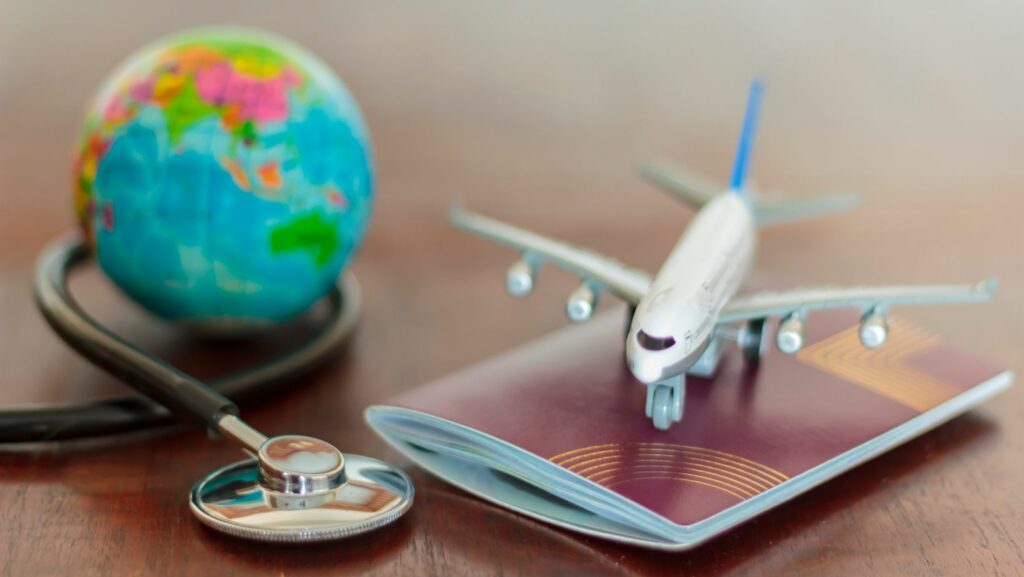Trade show travel is a vital component of many businesses’ marketing strategies. It’s an opportunity to showcase products, network with industry professionals, and gain valuable insights into the latest trends. For companies looking to expand their reach and make a lasting impression, trade shows offer a platform like no other.
Navigating the world of trade show travel can be both exciting and overwhelming. From booking accommodations to planning transportation logistics, every detail plays a crucial role in ensuring a successful experience. With careful preparation and a strategic approach, businesses can maximize their presence at trade shows and stand out among competitors.
In the fast-paced realm of trade show travel, staying organized and adaptable is key. By understanding the unique dynamics of each event and leveraging opportunities for growth, companies can harness the power of trade shows to elevate their brand and drive success.
Trade Show Travel
What Is Trade Show Travel?
 Trade show travel refers to the process of attending industry-specific events or exhibitions to promote products and services. It involves traveling to designated locations where businesses set up booths or displays to showcase their offerings to a targeted audience. Trade show travel allows companies to interact with potential customers, industry peers, and experts in a face-to-face setting, fostering networking opportunities and lead generation.
Trade show travel refers to the process of attending industry-specific events or exhibitions to promote products and services. It involves traveling to designated locations where businesses set up booths or displays to showcase their offerings to a targeted audience. Trade show travel allows companies to interact with potential customers, industry peers, and experts in a face-to-face setting, fostering networking opportunities and lead generation.
Importance of Trade Shows in Business Networking
Trade shows play a crucial role in business networking by bringing together professionals, buyers, and sellers from various industries under one roof. These events offer a platform for companies to build relationships, exchange ideas, and explore potential collaborations. Networking at trade shows can lead to valuable partnerships, increased brand visibility, and access to new markets. It provides a unique opportunity for businesses to engage with a diverse audience and expand their professional connections for mutual growth and success.
Planning Your Trade Show Visit
Choosing the Right Trade Show
 When selecting the ideal trade show to attend, researching industry-specific events is crucial. Analyzing factors like target audience demographics, exhibitor profiles, and past attendee feedback helps in identifying the most relevant trade shows aligned with the company’s goals. By focusing on events that attract the right audience, businesses can optimize their presence and yield maximum returns on investment.
When selecting the ideal trade show to attend, researching industry-specific events is crucial. Analyzing factors like target audience demographics, exhibitor profiles, and past attendee feedback helps in identifying the most relevant trade shows aligned with the company’s goals. By focusing on events that attract the right audience, businesses can optimize their presence and yield maximum returns on investment.
Preparing Your Schedule and Objectives
Creating a detailed schedule outlining key activities, such as product demonstrations, meetings, and seminars, is essential for a productive trade show visit. Setting clear objectives, such as generating leads, building partnerships, or launching new products, ensures that the team is focused and aligned towards achieving specific goals. By outlining priorities and allocating time effectively, businesses can make the most of their trade show experience.
Budgeting for Trade Show Travel
Estimating Travel and Accommodation Costs
 When considering trade show travel, estimating travel and accommodation expenses is crucial. He should calculate costs accurately to plan the budget effectively. They can research transportation options and accommodation rates to get a clear idea of expected expenses.
When considering trade show travel, estimating travel and accommodation expenses is crucial. He should calculate costs accurately to plan the budget effectively. They can research transportation options and accommodation rates to get a clear idea of expected expenses.
Potential expenses include airfare or gas for driving, accommodation fees, meals, transportation to the venue, and any additional costs such as parking or daily incidentals. He should keep in mind that prices may vary based on the location and the time of year, so it’s essential to account for potential fluctuations in expenses.
Ways to Save on Trade Show Expenses
To save on trade show expenses, she can consider various strategies to minimize costs without compromising quality or opportunities. They might explore early bird discounts for booking flights or accommodation, which can result in significant savings. Another option is to share accommodation with colleagues attending the trade show to split costs.
Additionally, they can look for cost-effective transportation alternatives, such as using public transit or ridesharing services rather than relying on taxis or rental cars. Taking advantage of free shuttle services provided by some trade show venues can also help reduce transportation expenses.
Moreover, researching affordable dining options near the venue and setting a daily budget for meals can contribute to overall cost savings during trade show travel. By being resourceful and proactive in seeking cost-saving opportunities, businesses can make the most of their trade show experience while staying within budget constraints.



